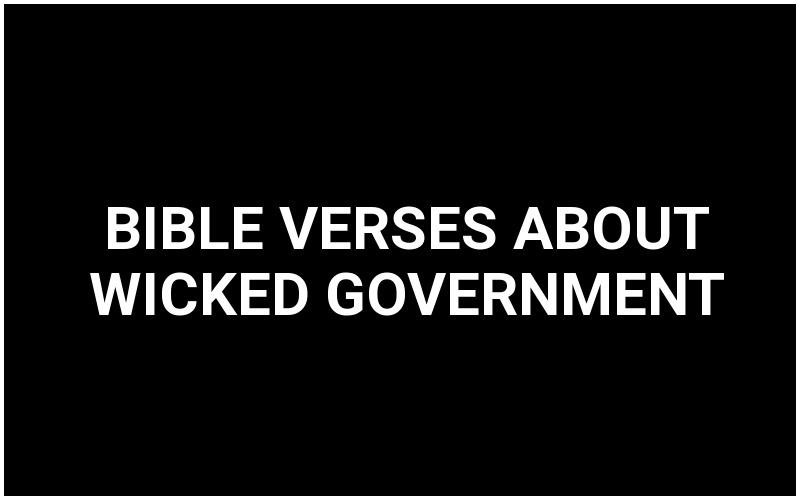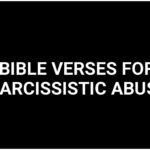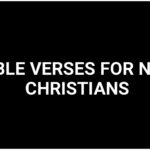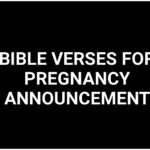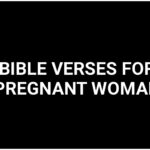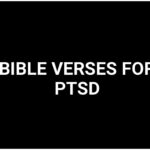Governments play a big role in our lives, and sometimes they do not act in ways that align with God’s teachings. This can be really frustrating for people who care about justice and righteousness. Many believe that the Bible has something to say about these situations. It reminds us of the importance of good leadership and how God views those who do wrong.
Today, we will look at some Bible verses that address wicked government. These verses remind us that while some leaders may not follow God’s ways, He is still in control. They also encourage us to seek justice and to pray for our leaders, hoping they will turn towards what is right.
Bible Verses About Wicked Government
The Need for Righteous Leadership
We often find ourselves yearning for leaders who align with God’s principles. Righteous leadership is vital for a healthy society, and the Bible guides us in recognizing the righteousness we expect from those in authority. When we seek just leadership, we advocate for honesty, integrity, and responsibility. This vision of leadership is what helps us reflect God’s character in our communities. We are reminded that just governance does not solely depend on our leaders; it also relies on our continuous prayer and support for them. When leaders pursue righteousness, they ultimately reflect that divine standard we are called to uphold.
Proverbs 29:2
“When the righteous thrive, the people rejoice; when the wicked rule, the people groan.” – Proverbs 29:2
Isaiah 1:23
“Your rulers are rebels, companions of thieves; they all love bribes and chase after gifts. They do not defend the cause of the fatherless; the widow’s case does not come before them.” – Isaiah 1:23
Proverbs 16:12
“Kings detest wrongdoing, for a throne is established through righteousness.” – Proverbs 16:12
Psalm 72:2
“He will judge your people in righteousness, your afflicted ones with justice.” – Psalm 72:2
Micah 3:1
“Listen, you leaders of Jacob, you rulers of Israel. Should you not embrace justice?” – Micah 3:1
Justice and the Role of Government
As we navigate our lives, we must remember that government should fundamentally be about maintaining justice. The Bible calls for leaders to be instruments of justice on behalf of all citizens, especially the vulnerable. Sadly, that expectation often isn’t met, leading us to advocate for true justice in our societies. It is our responsibility to speak out against any injustices we see and to pray for those in power. As a community of believers, we can work together to ensure that our leaders are aware of their divine calling to uphold justice and righteousness.
Proverbs 21:15
“When justice is done, it brings joy to the righteous but terror to evildoers.” – Proverbs 21:15
Isaiah 10:1-2
“Woe to those who make unjust laws, to those who issue oppressive decrees, to deprive the poor of their rights and withhold justice from the oppressed of my people.” – Isaiah 10:1-2
Psalm 82:3
“Defend the weak and the fatherless; uphold the cause of the poor and the oppressed.” – Psalm 82:3
Romans 13:3
“For rulers hold no terror for those who do right, but for those who do wrong. Do you want to be free from fear of the one in authority? Then do what is right and you will be commended.” – Romans 13:3
Amos 5:24
“But let justice roll on like a river, righteousness like a never-failing stream!” – Amos 5:24
Praying for Our Leaders
In times of crisis, it can be easy to criticize leaders and fail to remember their humanity. As believers, we are called to take our concerns to God and pray for those in authority. Prayer is powerful and essential, as it brings our requests for guidance and wisdom before the Lord. We join in prayer, not only seeking justice for ourselves but also interceding on behalf of our leaders to inspire them towards what is just and right. Our prayers can help them see their responsibilities through a heavenly lens, encouraging a move toward God’s principles.
1 Timothy 2:1-2
“I urge, then, first of all, that petitions, prayers, intercession, and thanksgiving be made for all people—for kings and all those in authority, that we may live peaceful and quiet lives in all godliness and holiness.” – 1 Timothy 2:1-2
Proverbs 21:1
“In the Lord’s hand, the king’s heart is a stream of water that he channels toward all who please him.” – Proverbs 21:1
Jeremiah 29:7
“Also, seek the peace and prosperity of the city to which I have carried you into exile. Pray to the Lord for it, because if it prospers, you too will prosper.” – Jeremiah 29:7
Psalms 122:6
“Pray for the peace of Jerusalem: ‘May those who love you be secure.'” – Psalms 122:6
Psalm 109:8
“May his days be few; may another take his place of leadership.” – Psalm 109:8
God’s Sovereignty Over Governments
Despite wickedness and corruption, we must remember that God is still sovereign over all governments. This truth brings comfort in uncertain times, as it reassures us that God’s plans ultimately prevail. We find encouragement in knowing that no matter how chaotic things may seem, God’s plans are unshakeable. Understanding God’s sovereignty encourages us to trust Him fully and to remain hopeful for the future. Our faith empowers us to act. When we remember that God is in control, we can confidently pray and work toward implementing hope and justice in our communities.
Psalm 22:28
“For dominion belongs to the Lord and he rules over the nations.” – Psalm 22:28
Daniel 4:17
“The decision is announced by messengers, the holy ones declare the verdict: so that the living may know that the Most High is sovereign over all kingdoms on earth and gives them to anyone he wishes and sets over them the lowliest of people.” – Daniel 4:17
Romans 13:1
“Let everyone be subject to the governing authorities, for there is no authority except that which God has established. The authorities that exist have been established by God.” – Romans 13:1
Isaiah 40:23
“He brings princes to naught and reduces the rulers of this world to nothing.” – Isaiah 40:23
Psalms 47:8
“God reigns over the nations; God is seated on his holy throne.” – Psalms 47:8
Examples of Wicked Leaders
The Scriptures offer numerous accounts of both righteous and wicked leaders throughout history. We learn valuable lessons from these stories that shape our understanding of good governance. They serve as reminders that those in power are capable of both great good and great evil. By observing the actions of wicked leaders in the Bible, we can develop a deeper appreciation for the leaders God desires, and strive to be advocates for integrity and righteousness. Each account urges us to reflect faith and justice in our daily lives, inspiring us to stand firm against wickedness.
1 Kings 21:25
“There was never anyone like Ahab, who sold himself to do evil in the eyes of the Lord, urged on by his wife Jezebel.” – 1 Kings 21:25
2 Kings 17:18
“So the Lord was very angry with Israel and removed them from his presence; only the tribe of Judah was left.” – 2 Kings 17:18
Jeremiah 22:17
“But your eyes and your heart are set only on dishonest gain, on shedding innocent blood and on oppression and extortion.” – Jeremiah 22:17
Micah 6:16
“You have observed the statutes of Omri and all the practices of Ahab’s house; you have followed their traditions. Therefore, I will give you over to ruin and your people to derision; you will bear the scorn of the nations.” – Micah 6:16
Isaiah 3:12
“Youth oppress my people, women rule over them. My people, your guides lead you astray; they turn you from the path.” – Isaiah 3:12
Accountability in Leadership
God holds leaders accountable for their actions, both before Him and those they govern. The Bible urges all leaders to answer for their deeds. This concept of accountability creates a moral compass for leaders to maintain integrity in their roles. We must remind ourselves and our leaders that we ultimately answer to God. Knowing that leadership carries weight helps us to advocate for leaders to be transparent and to serve with righteousness. As a community, we must encourage one another to embrace our roles, whether as leaders or supporters of sound leadership grounded in God’s ways.
James 3:1
“Not many of you should become teachers, my fellow believers, because you know that we who teach will be judged more strictly.” – James 3:1
Matthew 12:36
“But I tell you that everyone will have to give account on the day of judgment for every empty word they have spoken.” – Matthew 12:36
Luke 16:2
“So he called him in and asked him, ‘What is this I hear about you? Give an account of your management, because you cannot be manager any longer.'” – Luke 16:2
Ezekiel 18:30
“Therefore, you Israelites, I will judge each of you according to your own ways, declares the Sovereign Lord. Repent! Turn away from all your offenses; then sin will not be your downfall.” – Ezekiel 18:30
Romans 2:6
“God ‘will repay each person according to what they have done.'” – Romans 2:6
Final Thoughts
Throughout this exploration of scripture about wicked government, we’ve seen that God has a clear expectation for leadership. Righteousness, justice, and integrity are qualities that we should look for in leaders. We also realized that praying for our leaders is not just a good deed but a necessity. It reminds us that no matter how chaotic our surroundings may get, God is ultimately in control.
By holding leaders accountable and speaking out against unjust actions, we work towards a society that reflects God’s love and principles. Every one of us can contribute to this journey of advocating for righteousness and justice in our communities. We are called to be beacons of hope, encouraging one another to remain steadfast in our faith and to trust in God’s plan for our leadership.
As we find ourselves continuing to seek understanding about governance, we can exploring more topics such as Bible verses about evil or Bible verses about authority. Together, let’s iterate our commitment to uplifting God’s principles within our homes, communities, and nations.
